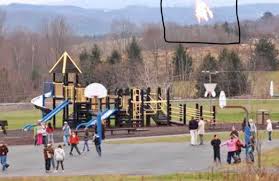Clean air is necessary for health, but clean air isn’t always a guarantee near shale gas sites. Many residents experience the threat of poor air quality firsthand. They can’t leave windows open for fear that pollution will harm them or their families.
Poor air quality is one reason why many families who live near shale gas facilities reach out for help. For more than 10 years, EHP’s public health experts and data scientists have assisted residents and collected exposure data on air quality to pinpoint concerns, recommend steps that can limit exposure to harmful pollution, and provide tools to demand action from elected officials and government agencies.
EHP defends public health in the face of shale gas development. We provide frontline communities with timely monitoring, interpretation, and guidance. We engage diverse stakeholders: health professionals, researchers, community organizers, public servants, and others. Because knowledge protects health.
Environmental Health Project, 2001 Waterdam Plaza Drive, Suite 201, McMurray, PA
>>>>>>++++++######=====#####+++++>>>>
CLEAN AIR COUNCIL with offices in Pittsburgh & Philadelphia
Clean Air Council and its supporters have worked for years to urge the U.S. Environmental Protection Agency (EPA) to reduce air pollution from new and existing oil and gas facilities. The gas industry emits large quantities of climate-changing methane as well as smog-causing and health-harming volatile organic compounds (VOC), including known carcinogens like benzene. Earlier this month, the EPA proposed pollution standards for gas wells and compressor stations that will better protect public health and help address the climate crisis by reducing 36 million tons of methane, 9.7 millions tons of VOCs, and 390,000 tons of air toxics from 2023 to 2035.
This rule requires air pollution inspections at all oil and gas extraction facilities regardless of size and includes significant updates to required pollution control technologies.
While the US EPA has taken great steps to reduce air pollution from the gas industry, we need them to improve this rule by eliminating the unnecessary flaring of fracked gas.
Comments will be accepted until February 13th and there will be two virtual public hearings January 10th and 11th.
Click here to urge EPA to adopt stronger pollution standards.
PHILADELPHIA OFFICE, 135 S. 19TH STREET, SUITE 300, PHILADELPHIA, PA, 19103
PITTSBURGH OFFICE, 200 FIRST AVE, SUITE 101, PITTSBURGH, PA 15222
>>>>>>++++++######=====#####+++++>>>>
FRACKING COMPENDIUM ~ 8th Edition Now Available, April 28, 2022
“Compendium of Scientific, Medical, and Media Findings Demonstrating Risks and Harms of Fracking and Associated Gas and Oil Infrastructure,” 8th Edition, April 28, 2022
The Eighth Edition of the Fracking Compendium ~~~~ Physicians for Social Responsibility (PSR) is proud to co-release the eighth edition of the fracking “Compendium,” a collection of some 2,000 abstracts of and links to medical, scientific and investigative reports about the consequences of oil and gas drilling, fracking, and infrastructure.
This unique resource presents evidence that fracking-related activities harm public health, the environment, and the climate; links provide easy access to the source material. The 2022 edition includes reports on liquefied natural gas (LNG), which the U.S. proposes to export in massive quantities to Western Europe, thus prolonging dependence on this potent climate-damaging fossil fuel. PSR co-produces the Compendium with Concerned Health Professionals of New York.

